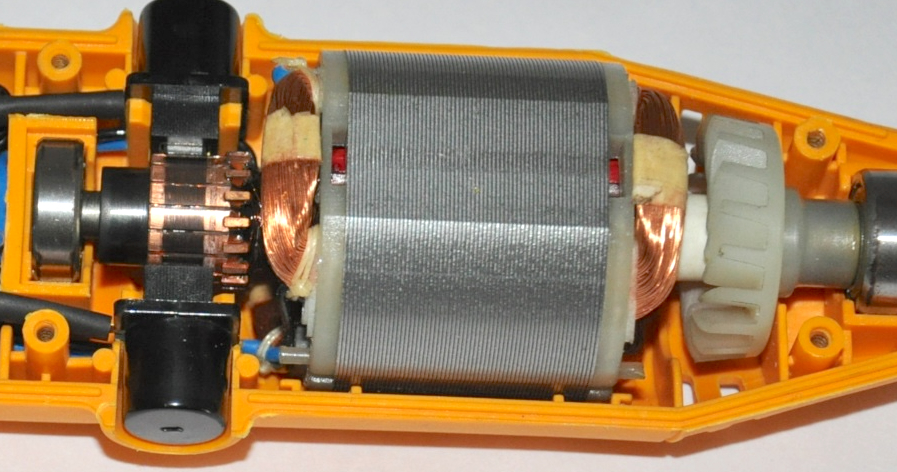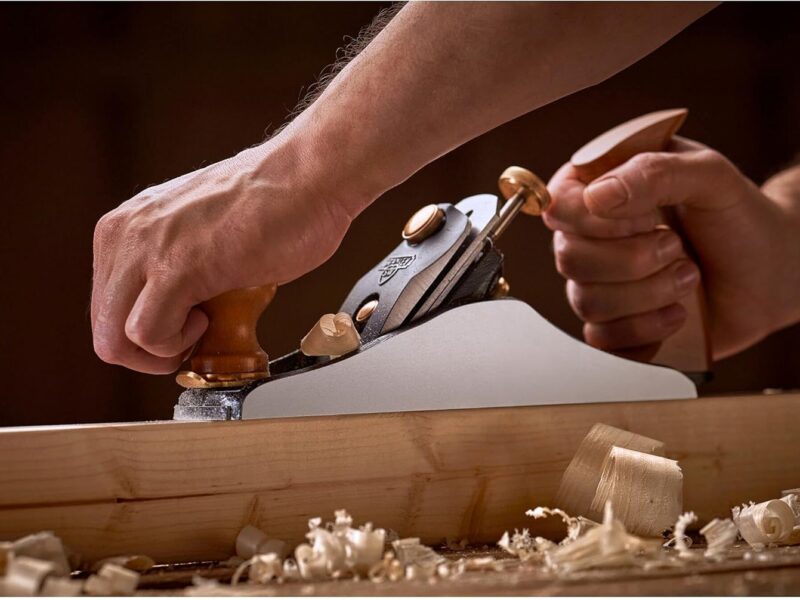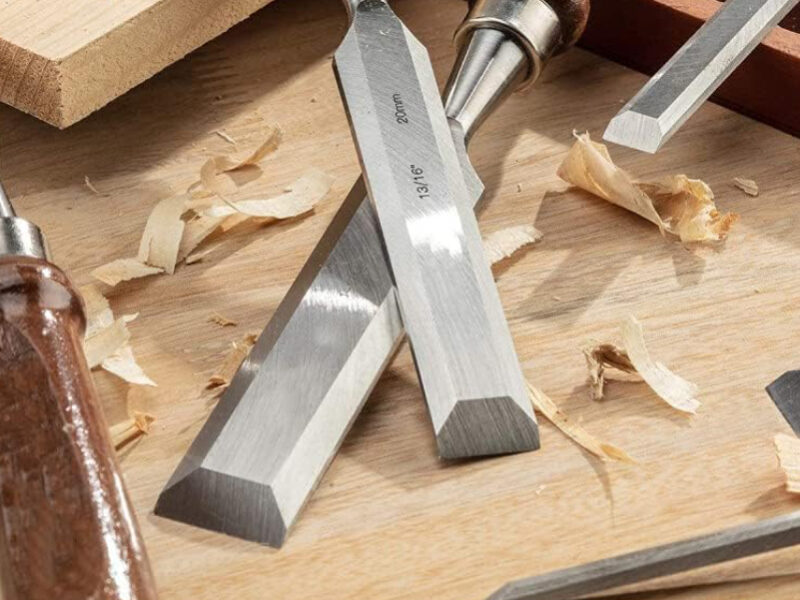The heart of any power tool is obviously its motor, and there are two main types: brushed and brushless. Each has its pros and cons. Knowing which will suit you best is an important element when you’re buying a power tool. It can make a big difference in getting the right balance of performance and value. So let’s take a closer look.
Brush Motors: The Old Reliables
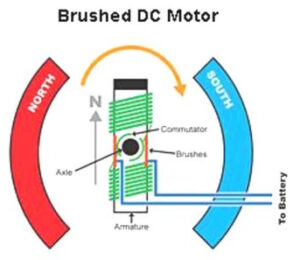 Think of a brushed motor as the trusty workhorse that’s been doing it’s job for as long as anyone can remember. According to one article I read they’ve been around since the 19th century! They were developed for corded tools, but are also used in some cordless models.
Think of a brushed motor as the trusty workhorse that’s been doing it’s job for as long as anyone can remember. According to one article I read they’ve been around since the 19th century! They were developed for corded tools, but are also used in some cordless models.
The design is relatively simple, and relatively cheap to produce. In a brushed motor, little carbon brushes (hence the name) rub against a device called a commutator to transmit electricity. Although they work pretty well the process isn’t the most efficient, and there is also some wear and tear over time. You’ll eventually need to replace those brushes, which can be a bit of a hassle.
On the plus side, brushed motors are generally pretty tough and durable. A lot of hammer drills and light demolition tools still use brush motors – and they need to survive some harsh environments. Power tools with brush motors are also a solid choice for occasional DIYers who don’t need top-notch performance. If you’re just doing basic tasks around the house and yard a brushed motor tool will get the job done, and won’t break the bank. A lot of people will never use the tool enough to wear the brushes out, so that becomes a less important factor.
Brushless Motors: The New(er) Kids on the Block
Brushless motors are often seen as the shiny new toys on the power tool block but the technology has actually been around since the 1960s. Brushless motors became popular with the introduction of battery-operated cordless tools – in fact you’ll rarely find them in corded tools because there are difficulties with them using AC power (batteries produce DC). I could get in to the techy stuff here if you like… no, didn’t think so.
 Anyway, brushless motors are much more efficient, and generally more powerful than a brushless equivalent. They make better use of the battery life available.
Anyway, brushless motors are much more efficient, and generally more powerful than a brushless equivalent. They make better use of the battery life available.
How do they do it? Well, instead of using brushes, brushless motors rely on magnets and electronic controls. This means no physical contact so there’s less friction, less heat, and ultimately a longer lifespan. Brushless motors are effectively maintenance free.
They are also usually more compact and lightweight, making them a great choice for tools that need to be portable. Plus, they offer better control and precision, so you can tackle more demanding tasks with ease. The downside? They’re generally more expensive than brushed motors.
Are brushless tools better than brushed? Which One Should You Choose?
Which motor is right for will really depend on your needs and budget. I’ve picked a couple of examples below so you can see what I’m talking about. If you’re a DIYer who only uses power tools occasionally and is looking for maximum value-for-money then a brushed motor tool (particularly a corded one) will usually be plenty good enough. If you’re a serious DIYer who likes the convenient of cordless or a pro who uses their power tools day in, day out, you’ll want the best performance and durability available. In that case a brushless motor is definitely worth considering.
Right now there’s still a noticeable price difference but battery technology is always improving so we’ll likely see that the price gap between brushed and brushless motors gets narrower over time.
Bear in mind that it’s not always clear from the body of the tool what motor is used. Sometimes they stamp it on there, other times you need to check the description.
Examples:
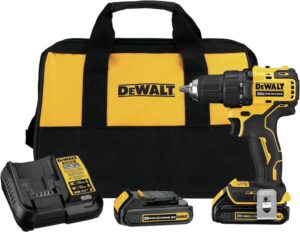 A good drill/driver is probably most people’s first power tool. I featured the DeWalt Atomic Max in my best cordless drills article. It’s powerful, compact, lightweight, and tough to beat as an all-rounder. If you buy it in the kit with two batteries, charge and carry bag the current price over at Amazon is $171.99. It has a brushless motor.
A good drill/driver is probably most people’s first power tool. I featured the DeWalt Atomic Max in my best cordless drills article. It’s powerful, compact, lightweight, and tough to beat as an all-rounder. If you buy it in the kit with two batteries, charge and carry bag the current price over at Amazon is $171.99. It has a brushless motor.
 The DeWalt DCD771C2 is very similar. It’s a 20V cordless, it comes with 2 batteries, a charger, and the same carry bag. The current price of this drill driver kit over at Amazon is $99.00. I think that’s a great deal – but it is a brush motor.
The DeWalt DCD771C2 is very similar. It’s a 20V cordless, it comes with 2 batteries, a charger, and the same carry bag. The current price of this drill driver kit over at Amazon is $99.00. I think that’s a great deal – but it is a brush motor.
The price difference isn’t always so great, and on occasions I’ve seen corded tools with brush motors that seem more expensive than battery-powered brushless – but on closer inspection it’s often because battery and charger aren’t included. As always, you need to check those details carefully so you’re sure exactly what you’re getting.
